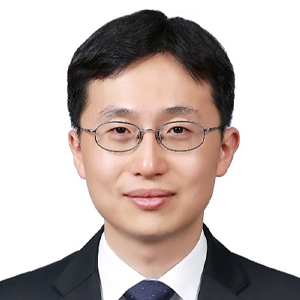
Professor, School of Chemical and Biological Engineering Seoul National University
Dae-Hyeong Kim obtained B.S. and M.S. degree in Chemical Engineering from Seoul National University, Korea, in 2000 and 2002, respectively. He received his Ph. D. degree in Materials Science and Engineering from University of Illinois at Urbana Champaign in 2009. From 2009 to 2011, he was a post-doctoral research associate at University of Illinois. He joined Seoul National University in 2011 and is currently a professor in School of Chemical and Biological Engineering of Seoul National University. He has been serving as an associate director of Center for Nanoparticle Research of Institute for Basic Science (IBS) from 2017. He has been focusing on the research of nanomaterials and deformable devices and their application to bio-integrated and bio-inspired electronics. He has been recognized with several awards including George Smith Award (2009), TR 35 award (2011), Hong Jin-ki Creative Award (2015), SCEJ Award (2016), and Korea Young Scientist Award (2017). He was also selected as one of the highly cited researchers by Clarivate Analytics in 2018-2023.
Soft Bioelectronic Devices for Cardiovascular Diseases
Abstract Recent advances in flexible and stretchable electronics have attracted great attention due to its potential applications to personalized bio-integrated healthcare devices. The mechanical mismatch between conventional rigid electronic devices and soft human tissues oftentimes causes various issues, such as a low signal-to-noise ratio of biosensors, inflammations on the tissue interfacing with the bioelectronics, skin irritations in the case of long-term wearing of the device, and ineffective electrical stimulations in feedback therapies. Such issues can be amplified in the case of interfacing with dynamically moving organs including the heart, and lead to unsatisfactory monitoring efficiency and therapeutic efficacy. Intrinsically-stretchable bioelectronic devices have a low system modulus and intrinsic softness, and thereby have a potential to solve these issues. Nanomaterials and their composites with the elastomeric matrix are a particularly promising material candidate for realizing this soft bioelectronics concept. In this talk, the unique strategies in the synthesis of nanomaterials, processing as stretchable functional nanocomposites, their seamless integration with dynamically-moving caridac muscles are presented. These efforts have combined recent breakthroughs in nanomaterials and soft electronics, and are expected to address unmet clinical challenges.
